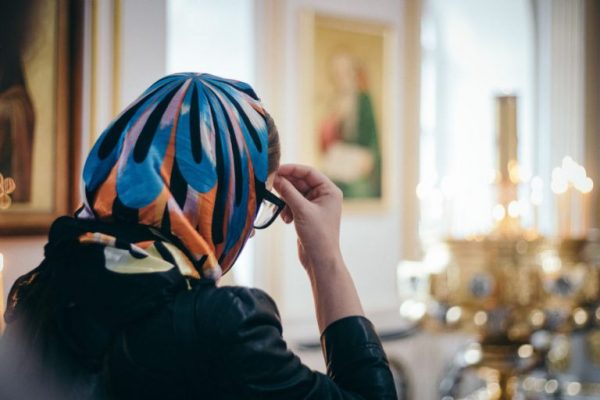As Scripture teaches, the world is a gift of God: “The earth is the Lord’s and all that is in it, the world, and those who live in it” (Psalm 24:1). The eternal Christ was God’s agent of creation. “All things were made through Him, and without Him not anything made that was made” (John 1:3). The Lord Himself took on human nature for our salvation. He “became flesh and dwelt among us, full of grace and truth” (John 1:14). On these premises, we receive and use all things in the world with gratitude and thanksgiving to God as the source of all blessings.
But Scripture gives another meaning to the “world” as well, a metaphorical meaning that defines the world as the realm of human affairs. This meaning of “world” signifies society that often stirs and acts in ways contrary to God’s will and indeed sometimes in defiant opposition to God’s purposes. This world is inclined toward evil and is often driven by the power of evil. Think of wars, crimes, exploitation, flagrant injustices, immorality, cruelty, and countless other forms of “man’s inhumanity to man.” This is the “world” that Christ primarily came to illuminate and to save. “God so loved the world that He gave his only Son, that whoever believes in Him should not perish but have eternal life” (John 3:16).
A Christian is challenged to live in these two overlapping worlds, the world as God’s gift and the world as the fallen and unredeemed sphere of human affairs, and to do so with knowledge and discretion. For Orthodox Christians the chief source of truth is the life of Christ and the teachings of the New Testament as interpreted within the faith and spirit of the Orthodox tradition. Discretion comes from the careful practice of prayer, sacramental life, ethical Christian living, and spiritual growth.
When Jesus declared to Pilate “My kingdom (or kingship) is not of (or from) this world” (John 18:36), He did not mean to separate His kingdom from the world but only to disclose that His authority, rule and power derived from God and not the world of human affairs. But the very purpose of Christ’s coming into the world was precisely to have His kingdom (rule and ways) change and transform the world–never of course by force but only by faith and free conversion of the heart. The main vocation of Christians is therefore not to separate from the world, adopting sectarian forms of life, but to dwell in it as Christ’s witnesses and to work by word and example for the betterment and the salvation of the world. Even those who adopt monasticism as a way of life ought to love the world, be connected with it spiritually, and pray for its redemption. Not only prayer, preaching, and philanthropy, but all forms of culture such as literature, philosophy, science, law, music, sports, and business, properly interpreted and rightly utilized, can be effective means of Christian mission and ministry.
There is a lot of goodness in the world. But the world can also be a cruel and sinister place. Keen discretion and sober moral sensibility are necessary. “Be wise as serpents and innocent as doves,” Jesus advised His followers (Matthew 10:16). In other words, Christians are to rival and even exceed the world in cleverness but at the same time to be innocent or pure and free from evil against anyone or anything–desiring, praying for, and working for the well-being and salvation of all people. Our prototype and model is Christ Himself who became human in order to show us what true humanity is like. While no single human being can reach the spiritual and moral sublimity of the qualities and maturity of Jesus, nevertheless the Christian goal both individually and collectively is to grow toward “the mature manhood to the measure of the stature of the fullness of Christ” (Ephesians 4:13).
The Church Fathers and greatest theologians of the Orthodox Church, such as the Cappadocians (Sts. Basil, Gregory the Theologian, and Gregory of Nyssa), were highly educated in the Hellenic culture, literature and philosophy. They were like bees moving from flower to flower and choosing the “nectar” of these fields which they “baptized” into the Christian worldview and used it as part of the innate goodness that God has put into this world. Because the ground and basis of their intellectual work was the Christian gospel and Christian thought, they selected the spiritual and ethical insights of Greek philosophy and literature (especially from Platonism and Stoicism), but altogether rejected the religious aspects of Greek culture because these were mostly polytheistic and sometimes flagrantly immoral. So today Christian inquirers and students can study and use insights of contemporary literature and philosophy of whatever orientation and background, but only insofar as these are harmonious and useful by the standards of Orthodox faith and life, and being especially careful about the religious aspects of outside philosophies and forms of meditation.
Orthodoxy theology supports as well the ancient Greek principle of “a healthy mind in a healthy body.” This principle did not receive much attention by the Church Fathers and saints who were focused on spiritual far more than material things. Nevertheless, Orthodox thought advocates the sanctity and health of the body through medical treatment, nutrition, physical work, and proper exercise. From this standpoint, Orthodox Christians can participate in the contemporary culture of sports but only with discretion on the basis of Christian principles and virtues, such as moderation, fairness, courage, teamwork, integrity, and other forms of good sportsmanship. St. Paul’s counsel “to glorify God in your body” (1 Cor 6:20), which was meant in the context of moral conduct, can apply to the viewing and practice of athletics. Let us beware however about the fact that in contemporary culture sports often becomes an obsession and is driven by financial interests and the less than Christian principle of “win at all costs.”
Finally, there is the world of politics where “winning at all costs” is a grave temptation and where the ugliest human passions can and do flare up. An article in the periodical Christianity Today, authored by Amy E. Black, was entitled: “How to be political without losing your soul.” Christian faith calls us to be exemplary citizens and participate in the process of political life on the basis of the same Christian principles to be applied to the seamless whole of life. This means not only the responsibility to see through and beyond the incivility and distortions of campaigning, by lamenting and rejecting such forms of politics, but also the task of thinking hard about the issues at hand and making decisions on the basis of Christian intellectual and moral reason.
Amy Black encourages Christians to appreciate the complexity of such issues as taxation, illegal immigration, foreign affairs, and economic policy which certainly have more than one side. Equally honest persons, whether Republicans or Democrats, can respectfully disagree based on equally legitimate intellectual and moral reasons–in which case only fair compromise is the solution. The author also strongly advises “to play fair in the war of words,” standing firm against mean-spirited, false and misleading political talk. We do not have easy answers in a complex world, but we can try to honor God also through politics by means of honest, mutually respectful, reasoned dialogue, and fair compromise as deemed necessary. We may not always be able to do “all things with love” (1 Cor 16:14), as St. Paul exhorts, but we ought to try for the sake of faith and human dignity.

















